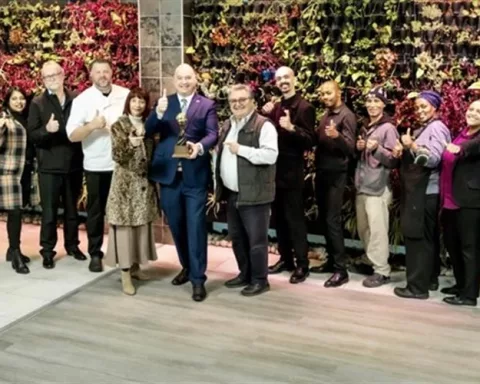The Africa’s Travel Indaba 2023 conference was recently held at the Inkosi Albert Luthuli Convention Centre in Durban, South Africa. The event brought together tourism industry leaders, government officials, and business owners from across the continent to discuss the future of African tourism. One of the key speakers, Patricia de Lille, the Minister of Tourism for South Africa, emphasized the importance of collaboration and innovation in driving the growth and success of the tourism sector.
Repositioning Africa’s Travel Indaba
Due to the significant changes experienced in tourism during the COVID-19 pandemic, the Africa’s Travel Indaba has been repositioned under the motto, “Shaping Africa’s Tomorrow, Through Connection Today.” This emphasizes the primary objective of the event, which aims to positively influence the continent’s economic and cultural trajectories by bringing the world to Africa.
Balancing Collaboration and Competition
In her speech, Minister de Lille stressed the importance of balance between competition and collaboration in the tourism industry. While healthy competition can drive innovation and growth, unchecked rivalry can lead to businesses and destinations cutting corners to stay afloat. Therefore, fostering a culture of collaboration and partnerships is essential for creating seamless and memorable travel experiences for visitors. She further underscored the role of collaboration in addressing significant challenges facing the industry, such as infrastructure development, connectivity, and destination marketing.
Supporting Small Tourism Enterprises
The South African Department of Tourism has invested R11.7 million in its Market Access Support Program (MASP) to bolster small and medium-sized tourism businesses. This initiative enables 123 local small inbound tourism enterprises to showcase their products and services at the Hidden Gems pavilion during Africa’s Travel Indaba, facilitating growth and sustainability within the industry. The government’s commitment to nurturing entrepreneurship in the tourism sector ultimately contributes to job creation and economic growth.
Sustainable and Responsible Tourism
Minister de Lille highlighted the need to prioritize sustainable tourism practices that address climate change, protect the environment, and promote economic development. The Green Tourism Incentive Program (GTIP) in South Africa is one such initiative designed to encourage private-sector tourism enterprises to adopt sustainable solutions for electricity and water resource management. To date, the GTIP has provided funding to 130 tourism businesses, promoting increased competitiveness and operational sustainability. Furthermore, responsible tourism, which focuses on preserving cultural heritage and empowering local communities, is an essential component of sustainable tourism development.
Overcoming Challenges to Unlock Growth
To fully harness the potential of the African tourism sector, the industry must address significant challenges such as visa regimes, airlift capacity, and infrastructure development. Minister de Lille called for a harmonized visa regime across the continent to allow visitors to move freely between countries. Simplifying e-visa applications and reducing visa costs will make Africa a more attractive destination for both African and international travelers. Improving airlift capacity is also crucial in increasing tourist arrivals to Africa. By working together to expand and modernize Africa’s aviation infrastructure, governments and private-sector stakeholders can maintain the continent’s connectivity and accessibility to global travelers.
Embracing Innovation and Inclusivity
The tourism industry must prioritize innovation and technology to facilitate efficient and effective development and promotion of tourism offerings. Technological advancements can improve the visitor experience, providing travelers with personalized and seamless experiences, and allow businesses to better understand and cater to the needs of their target markets. Inclusivity is another cornerstone of sustainable tourism development, ensuring that the benefits of tourism reach all members of society and that everyone can access the opportunities created by the sector to foster social cohesion and contribute to poverty alleviation.
The success and future of African tourism depend on the collaboration between governments, private-sector stakeholders, and local communities. Embracing innovation, sustainability, and inclusivity will enable the African tourism sector to overcome its challenges and unlock its full potential, creating a brighter future for the continent and its people.












